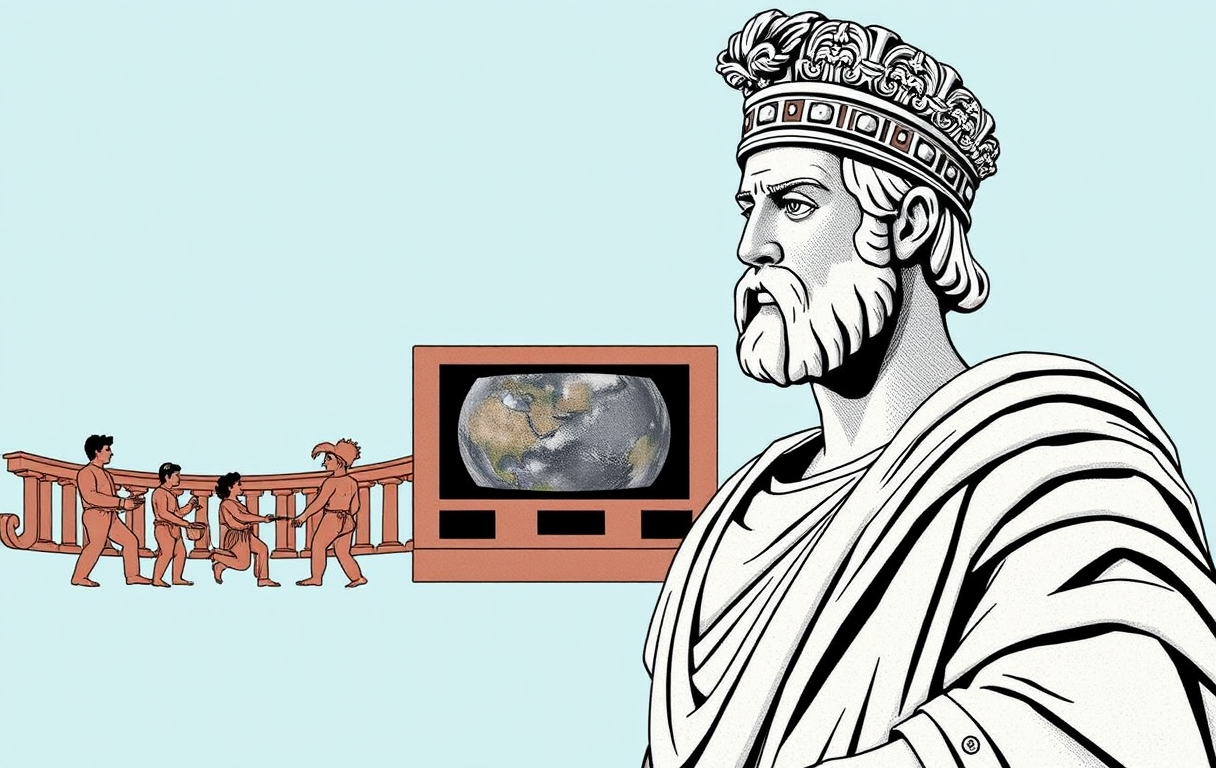The Engineering Problem: Broadcasting in Antiquity
Reality TV relies fundamentally on real-time documentation and dissemination of events. For Julius Caesar to invent this medium, several critical technological hurdles would need to be overcome:
- Recording Visual and Audio Data:
- Without cameras or microphones, ancient Rome lacked the tools to capture moving images or sound. However, Caesar’s engineers might have developed rudimentary optical devices, such as pinhole cameras, to project live scenes onto reflective surfaces.
- For audio, a system of live transcription by scribes, relayed via messengers to central audiences, could have approximated live commentary.
- Transmission Medium:
- Rome’s sophisticated network of aqueducts and roads demonstrates their expertise in large-scale infrastructure. A similar effort might have created an “optical relay” using polished bronze mirrors to reflect sunlight between distant locations, enabling visual signals to be transmitted over long distances.
- Live Audience Engagement:
- Amphitheaters such as the Colosseum could have served as central broadcast hubs. Participants in Caesar’s reality shows could perform or compete in staged spectacles, with audiences providing real-time feedback through gestures or symbolic objects (e.g., colored flags for voting).
Societal Implications: The Roman Reality TV Network
If Caesar had implemented reality television, it would likely have served propaganda purposes, solidifying his authority and showcasing the strength and unity of Rome. Key features might have included:
- Political Campaigns:
Senators and generals could compete in public debates, trials, or even physical games, with citizens voting on their performance. - Military Adventures:
Caesar’s conquests in Gaul and beyond would have been broadcast to Roman citizens, boosting morale and inspiring loyalty. Dramatic battles would have become must-watch events, rivaling modern sports broadcasts. - Gladiatorial Drama:
Reality TV might have enhanced gladiatorial games by introducing backstories and rivalries between combatants, making viewers emotionally invested in outcomes.
Logistical Challenges and Potential Solutions
- Scalability:
- Reaching Rome’s expansive population would require a network of amphitheaters and public squares equipped with broadcast capabilities, perhaps using orators to narrate events based on signals received from Caesar’s optical relay system.
- Content Management:
- Without electricity or digital storage, preserving and curating content would have been labor-intensive. Scribes and artists could manually create illustrated transcripts or frescoes to document episodes.
- Censorship and Manipulation:
- Caesar’s government would likely have tightly controlled content to prevent dissent, akin to modern regimes managing state media.
Impact on History
Had Julius Caesar succeeded in inventing reality TV, it could have reshaped the course of human history in several ways:
- Increased Centralized Power:
Reality TV would have amplified Caesar’s charisma, potentially solidifying his control and delaying or preventing his assassination. - Cultural Shifts:
Roman citizens might have become less engaged in traditional political processes, instead focusing on entertainment and spectacle—a precursor to modern concerns about the “bread and circuses” phenomenon. - Technological Advancements:
The drive to implement such a system might have accelerated the development of optics, acoustics, and other scientific fields.
Conclusion
Julius Caesar’s inventiveness as a leader suggests that, with the right motivations and resources, he could have laid the groundwork for an ancient version of reality television. While purely speculative, the exercise underscores how historical figures might have adapted their ingenuity to modern concepts, highlighting both the timeless nature of human creativity and the societal impact of technological innovation.
